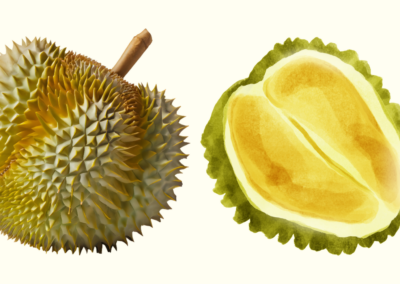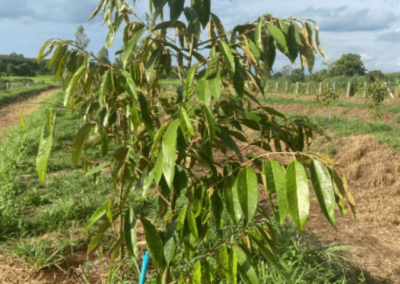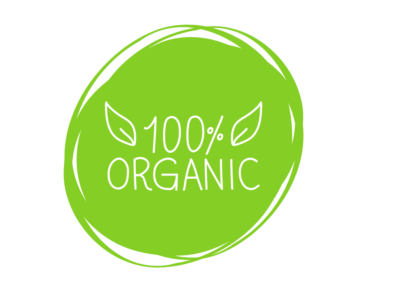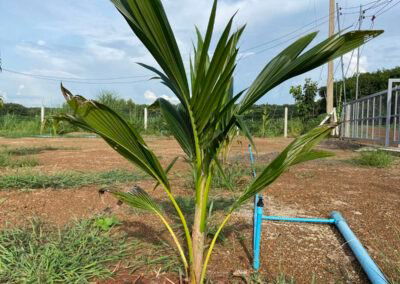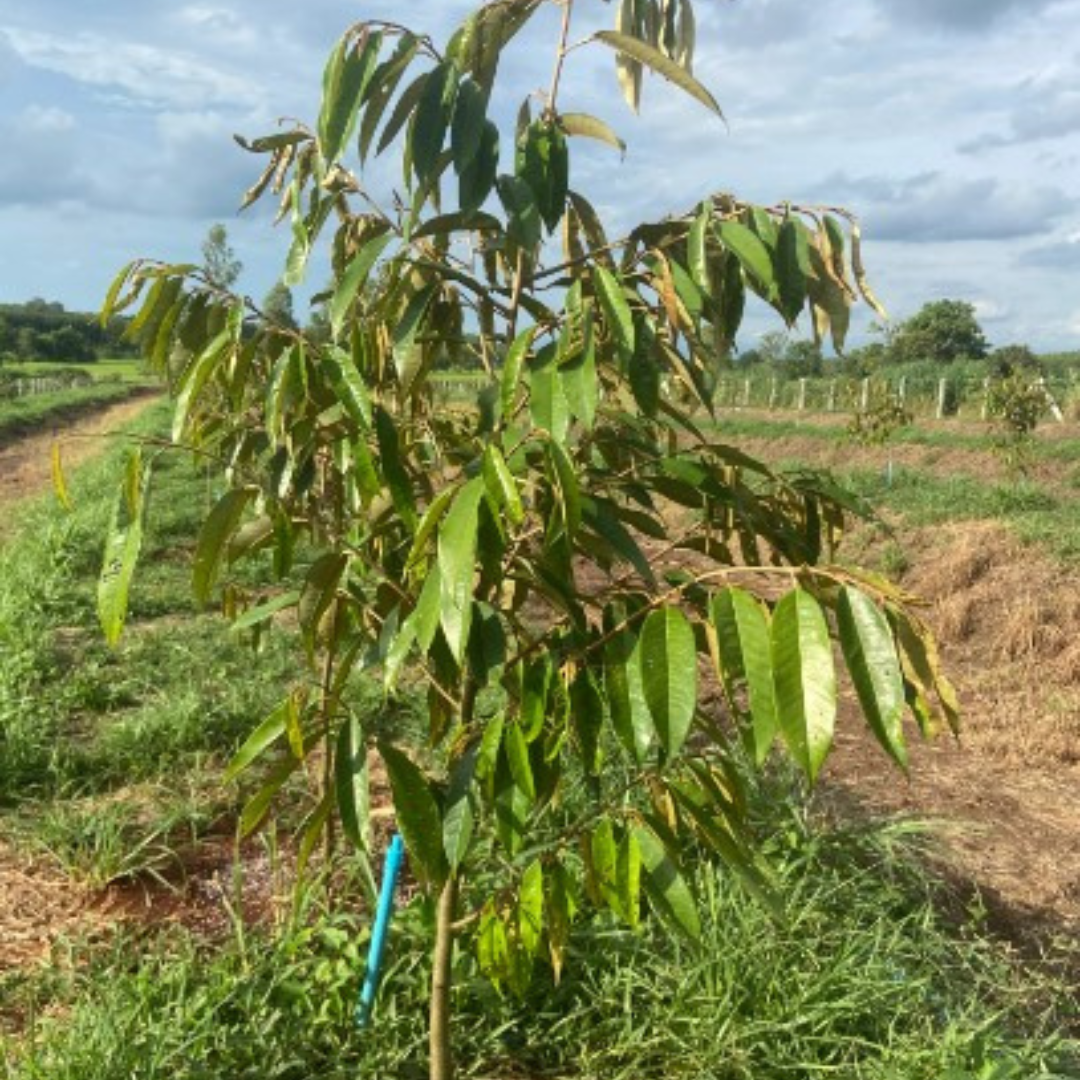

Welcome to Bua Sap Farm - Agriculture
Bua Sap Durian Farm, Thailand
Durian Farming in Thailand, our approach to organic farming.
At Bua Sap Farm, we are dedicated to cultivating the finest organic Durians with love and care. Our commitment to sustainable practices ensures that every fruit is a testament to our passion for agriculture and the environment. Discover the unique flavors of our durians and join us in our journey towards a greener future.
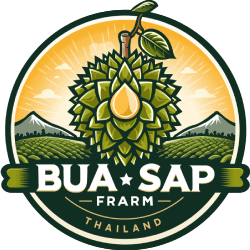
Welcome to Bua Sap Farm
We are passionate about the best quality and organic products
We are dedicated to maintaining crop growth and excellence in sustainable agriculture. Our commitment to innovation and ethical practices lays the foundation for the future of agriculture to help you celebrate life’s special moments.

There are many variations of passages of available but the have suffered alteration in some form.
SINCE 2010
At Thaidurianfarm, we believe in the power of community and collaboration. Our farm is not just a place to grow fruits; it’s a hub for innovation and learning. Join us as we explore new techniques, share knowledge, and inspire each other to push the boundaries of sustainable agriculture. Together, we can cultivate a future where farming thrives in harmony with nature. Experience the joy of fresh, organic produce while being part of a movement that values environmental stewardship and community engagement. Let’s grow together and make a lasting impact on the world around us.
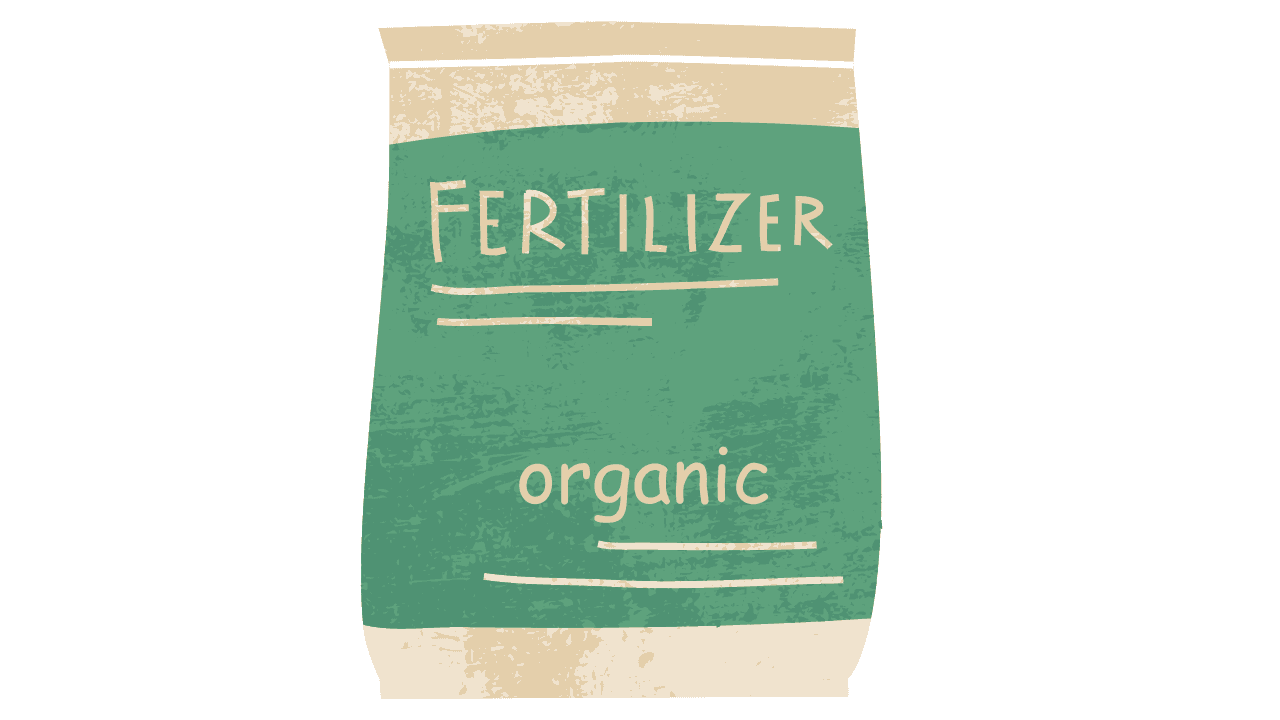
Growing organic fruit
Premium Quality Product
Have Experts Team
Blossoming into a Brighter Future
Growing Harmony with Nature
Healthy life with fresh products
Explore Our Latest Insights on Organic Durian Farming
How to Support Local Farmers
Join us in making a difference by choosing to support local farmers who bring fresh, organic produce directly to your table. Together, we can cultivate a sustainable future.Supporting local farmers is crucial for fostering a resilient community and a healthier...
Explore Benefits Of Organic Farming.
Join us in revolutionizing agriculture with sustainable practices that benefit both the environment and the economy.Organic farming is at the heart of sustainable agriculture, focusing on natural processes and biodiversity to produce food that is both healthy and...
What are the economic implications of organic farming?
Discover how organic farming is reshaping the agricultural landscape with its economic advantages, fostering sustainable growth and profitability.Organic farming in Thailand plays a crucial role in promoting sustainable agriculture, particularly with crops like durian...
Fertilizer Injection to irrigation System
Unlock the full potential of your organic durian and fruit crops with our advanced fertilizer injection systems, designed to seamlessly integrate with your irrigation setup.Fertilizer injection systems are revolutionizing organic durian and fruit farming by ensuring...
What Makes Monthong The Most Popular Durian Variety?
Explore why Monthong is the king of durians, celebrated for its rich flavor and creamy texture.Monthong durian offers a sweet, buttery taste that is beloved worldwide.Its smooth, custard-like consistency makes it a favorite among durian enthusiasts.Monthong durian,...
Ecological and Organic Farming: An Overview
Delve into the nuances of ecological and organic farming to make informed choices about sustainable agriculture practices.Focuses on biodiversity and ecosystem health, integrating natural processes for sustainable agriculture.Emphasizes the use of natural inputs and...
Discover the Delights of a Thai Durian Farm
Thai durian farms are a fascinating blend of agriculture and culture. Known as the "King of Fruits," durians are grown in tropical regions, and Thailand is one of the leading producers. Farms in provinces like Chanthaburi, Chumphon and Sisaket offer visitors...
The Benefits of Ecologic Farming in Thailand’s Durian Industry
Discover how innovative farming techniques are revolutionizing the durian industry in Thailand, promoting sustainability and boosting yields.Ecologic farming practices are reshaping the landscape of Thailand's durian industry. By prioritizing environmental health and...
How does organic farming differ from conventional farming?
Uncover how organic farming transforms the way we cultivate durians, ensuring sustainability and quality.Organic farming is a holistic approach to agriculture that emphasizes the use of natural processes and materials. It avoids synthetic fertilizers and pesticides,...
China Discovery of harmful Chemical in Thai Durians
Discover the recent findings on harmful chemicals found in Thai durians and what it means for consumers worldwide.Explore the sustainable practices of organic durian farming in Thailand, where farmers prioritize environmental health and consumer safety. Learn how...

Helth Issues With Chemical Farming
Explore the unseen health impacts of chemical farming and discover sustainable alternatives for a healthier future.Chemical farming, while boosting agricultural productivity, poses significant health risks. The use of synthetic pesticides and fertilizers can lead to...
THE BENEFITS OF ECOLOGICFARMING IN THAILAND’S DURIANINDUSTRY
Discover how ecologic farming is transforming Thailand's durian industry, promoting sustainability and enhancing quality.Ecologic farming is a holistic approach that prioritizes environmental health, biodiversity, and sustainable practices. In Thailand's durian...
Eco-friendly agriculture
Discover the innovative practices transforming durian farming into a sustainable and eco-friendly industry.Implementing methods that preserve natural resources and enhance biodiversity.Utilizing organic techniques to produce healthier and tastier durians.Empowering...
Discover benefits of cow manure compost
Composted cow manure is rich in organic matter, which plays a vital role in improving soil structure. Here’s how it benefits durian growth:Improved Soil Aeration: The organic matter in composted cow manure makes the soil more porous, allowing...
Start composting cow manure
Discover how composting cow manure can revolutionize your organic durian farm, enhancing soil health and boosting crop yields sustainably.Creating cow manure compost is a fantastic way to recycle nutrients and enrich soil. Here's how you can do it step by step: 1....

Professional Farming
We Feed the Soil

Efficient process
Our proccess
Our farming techniques
1. Strategic Farming Approach
- Single point-of-contact customer service
- Proactive partnership to identify and optimize efficiencies and opportunities
2. Skilled Cultivation Expertise
- Single point-of-contact customer service
- Proactive partnership to identify and optimize efficiencies and opportunities.
3. Rigorous Quality Checking
At Thai Durian Farm, we prioritize excellence through our meticulous quality checking processes. Our dedicated team employs a combination of traditional methods and modern technology to evaluate each fruit, guaranteeing that only the best makes it to your table. We believe that rigorous quality checking not only enhances the flavor of our durians but also builds trust with our customers, ensuring a delightful experience with every bite.
5. Is organic farming the future?
In the future, as climate change poses increasing threats to conventional agriculture, organic farming will become an essential safeguard for food security.

Frequently asked questions
Comprehensive Agriculture FAQs for Every Farmer
What are the main factors that influence crop yield?
- Soil Health: Organic farming relies heavily on maintaining soil fertility through natural methods like composting, crop rotation, and green manures. The quality of the soil directly impacts the yield.
- Pest and Disease Management: Without synthetic pesticides, organic farmers must use natural pest control methods, which can sometimes be less effective, impacting yields
- Crop Variety: The choice of crop and its adaptability to organic farming practices play a significant role.
- Nutrient Management: Organic fertilizers like manure and biofertilizers must be managed carefully to ensure crops get the nutrients they need.
- Weed Control: Weeds can compete with crops for nutrients, water, and sunlight, and organic methods of weed control can be labor-intensive.
- Farmer Expertise: The knowledge and experience of the farmer in organic practices greatly influence the success of the yield.
What are the benefits of organic farming compared to conventional farming?
Organic farming offers several advantages over conventional farming. Here are some of the key benefits:1. Environmental Sustainability: Organic farming practices enhance soil health, promote biodiversity, and reduce pollution. By avoiding synthetic pesticides and fertilizers, organic farmers help maintain clean water and air, preserve ecosystems, and reduce greenhouse gas emissions.2. Soil Health: Organic farming focuses on building and maintaining healthy soil through the use of natural compost, manure, and crop rotations. Healthy soil improves water retention, reduces erosion, and supports beneficial microorganisms.3. Biodiversity: Organic farms tend to have higher biodiversity levels, including a variety of crops, insects, and wildlife. This diversity helps create a balanced ecosystem, which can reduce the incidence of pests and diseases naturally.4. Food Quality: Organic produce often contains higher levels of certain nutrients, such as vitamins, minerals, and antioxidants. Additionally, organic farming avoids the use of genetically modified organisms (GMOs) and synthetic chemicals, which some consumers prefer to avoid.5. Animal Welfare: Organic farming standards often include more humane treatment of animals, such as access to pasture, organic feed, and prohibition of certain antibiotics and growth hormones.6. Reduced Chemical Exposure: By not using synthetic pesticides and fertilizers, organic farming reduces the risk of chemical residues in food, which can benefit both consumers and farm workers.7. Market Demand: There is a growing demand for organic products, and consumers are often willing to pay a premium for them. This can provide economic benefits to organic farmers.8. Long-term Viability: Organic farming practices promote long-term agricultural sustainability by preserving soil fertility and health for future generations.While organic farming has many benefits, it’s important to note that it can also come with challenges, such as higher production costs, lower yields, and the need for more labor-intensive practices. However, the overall benefits to the environment, human health, and animal welfare make organic farming an attractive option for many.If you have any specific aspects of organic farming you’d like to explore further, let me know! 😊
How does climate change impact agriculture, and what adaptations are available for farmers?
What types of fertilizers are most effective for different soil types?
YChoosing the right fertilizer for different soil types is crucial for optimal plant growth. Here are some recommendations for various soil types:1. Loam Soil: Loam soil is considered ideal for gardening and agriculture due to its balanced composition of sand, silt, and clay. It has good water retention and drainage. For loam soil, a balanced fertilizer with an NPK ratio of 10-10-10 or 20-20-20 is effective. Organic fertilizers like compost and well-rotted manure also work well.2. Clay Soil: Clay soil has excellent water-holding capacity but poor drainage. It can become compacted easily. To improve soil structure and fertility, use fertilizers high in phosphorus and potassium, such as a 5-10-10 or 10-20-20 NPK ratio. Adding organic matter like compost or gypsum can help improve drainage and soil structure.3. Sandy Soil: Sandy soil has good drainage but poor nutrient-holding capacity. It requires frequent irrigation and fertilization. Use fertilizers with a higher nitrogen content, such as a 15-5-10 or 20-10-10 NPK ratio. Organic matter like compost or well-rotted manure can help improve nutrient retention and soil fertility.4. Silt Soil: Silt soil has good water retention and fertility but can become compacted. A balanced fertilizer with an NPK ratio of 10-10-10 or 20-20-20 is suitable for silt soil. Adding organic matter like compost can help improve soil structure and prevent compaction.5. Peat Soil: Peat soil is rich in organic matter and has good water retention but can be acidic. Use fertilizers with a balanced NPK ratio, such as 10-10-10 or 20-20-20, and consider adding lime to reduce soil acidity. Organic fertilizers like compost and well-rotted manure are also beneficial.6. Calcareous Soil: Calcareous soil is alkaline and can have poor nutrient availability. Use fertilizers high in nitrogen and phosphorus, such as a 10-20-10 or 20-20-10 NPK ratio. Adding organic matter like compost can help improve nutrient availability and soil structure.7. Saline Soil: Saline soil has high salt content, which can affect plant growth. Use fertilizers with a balanced NPK ratio, such as 10-10-10 or 20-20-20, and consider adding gypsum to help leach excess salts from the soil. Organic matter like compost can also help improve soil structure and fertility.By selecting the appropriate fertilizer for your soil type, you can enhance soil fertility, improve plant growth, and achieve better yields. If you have any specific questions or need further guidance, feel free to ask! 😊.
What are the common challenges in livestock farming, and how can they be addressed?
Livestock farming comes with its own set of challenges, but there are various strategies to address and mitigate these issues. Here are some common challenges and potential solutions:1. Disease and Health Issues: Livestock are susceptible to various diseases, which can lead to significant economic losses.Solution: Implement regular veterinary check-ups, vaccination programs, and proper biosecurity measures to prevent disease outbreaks. Maintaining clean and hygienic living conditions for animals is also crucial.2. Feed and Nutrition: Providing adequate and balanced nutrition is essential for the health and productivity of livestock.Solution: Develop a well-balanced feed plan that meets the nutritional needs of different animal species and their life stages. Consider using high-quality feed and supplements, and explore alternative feed sources to reduce costs.3. Water Availability: Access to clean and sufficient water is vital for livestock health and production.Solution: Ensure a consistent and reliable water supply by installing water storage systems, maintaining clean water sources, and implementing efficient water management practices.4. Breeding and Genetics: Selecting the right breeding stock is important for improving livestock productivity and health.Solution: Use selective breeding programs to enhance desirable traits, such as disease resistance, growth rate, and reproductive performance. Consider using artificial insemination and other advanced breeding technologies.5. Housing and Welfare: Proper housing and welfare conditions are essential for the well-being of livestock.Solution: Provide adequate shelter, space, and ventilation to ensure comfortable living conditions. Implement good animal welfare practices, such as proper handling, stress reduction, and humane treatment.6. Market Access and Price Volatility: Fluctuations in market prices and limited access to markets can impact the profitability of livestock farming.Solution: Diversify income sources by exploring value-added products, such as meat processing, dairy products, and organic certification. Establish strong relationships with buyers and cooperatives to improve market access.7. Climate Change and Environmental Impact: Climate change can affect livestock production through extreme weather events, temperature fluctuations, and changes in forage availability.Solution: Adopt climate-resilient farming practices, such as rotational grazing, improved pasture management, and drought-tolerant forage crops. Implement sustainable practices to reduce the environmental impact of livestock farming, such as manure management and reducing greenhouse gas emissions.8. Financial Constraints: Limited access to capital and financial resources can hinder the growth and development of livestock farms.Solution: Seek financial assistance through grants, loans, and subsidies. Explore opportunities for investment and partnerships to secure funding for infrastructure improvements and expansion.By addressing these challenges with effective strategies and solutions, livestock farmers can improve the health, productivity, and sustainability of their operations.If you have any specific concerns or need further guidance on livestock farming, feel free to ask!s/p>
How can small-scale farmers access better markets for their produce?
Livestock farming comes with its own set of challenges, but there are various strategies to address and mitigate these issues. Here are some common challenges and potential solutions:1. Disease and Health Issues: Livestock are susceptible to various diseases, which can lead to significant economic losses.Solution: Implement regular veterinary check-ups, vaccination programs, and proper biosecurity measures to prevent disease outbreaks. Maintaining clean and hygienic living conditions for animals is also crucial.2. Feed and Nutrition: Providing adequate and balanced nutrition is essential for the health and productivity of livestock.Solution: Develop a well-balanced feed plan that meets the nutritional needs of different animal species and their life stages. Consider using high-quality feed and supplements, and explore alternative feed sources to reduce costs.3. Water Availability: Access to clean and sufficient water is vital for livestock health and production.Solution: Ensure a consistent and reliable water supply by installing water storage systems, maintaining clean water sources, and implementing efficient water management practices.4. Breeding and Genetics: Selecting the right breeding stock is important for improving livestock productivity and health.Solution: Use selective breeding programs to enhance desirable traits, such as disease resistance, growth rate, and reproductive performance. Consider using artificial insemination and other advanced breeding technologies.5. Housing and Welfare: Proper housing and welfare conditions are essential for the well-being of livestock.Solution: Provide adequate shelter, space, and ventilation to ensure comfortable living conditions. Implement good animal welfare practices, such as proper handling, stress reduction, and humane treatment.6. Market Access and Price Volatility: Fluctuations in market prices and limited access to markets can impact the profitability of livestock farming.Solution: Diversify income sources by exploring value-added products, such as meat processing, dairy products, and organic certification. Establish strong relationships with buyers and cooperatives to improve market access.7. Climate Change and Environmental Impact: Climate change can affect livestock production through extreme weather events, temperature fluctuations, and changes in forage availability.Solution: Adopt climate-resilient farming practices, such as rotational grazing, improved pasture management, and drought-tolerant forage crops. Implement sustainable practices to reduce the environmental impact of livestock farming, such as manure management and reducing greenhouse gas emissions.8. Financial Constraints: Limited access to capital and financial resources can hinder the growth and development of livestock farms.Solution: Seek financial assistance through grants, loans, and subsidies. Explore opportunities for investment and partnerships to secure funding for infrastructure improvements and expansion.By addressing these challenges with effective strategies and solutions, livestock farmers can improve the health, productivity, and sustainability of their operations.If you have any specific concerns or need further guidance on livestock farming, feel free to ask!
Is organic farming the future?
In the future, as climate change poses increasing threats to conventional agriculture, organic farming will become an essential safeguard for food security.
Leave us a message
Send us a Massage
Please send us a massage if you want to know more about our farm, or organic farming.
Email Us Anytime
buasapfarm.thailand@gmail.com
Farm Address
Sisaket. Thailand

